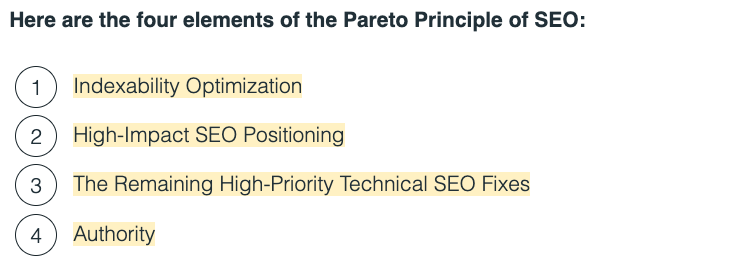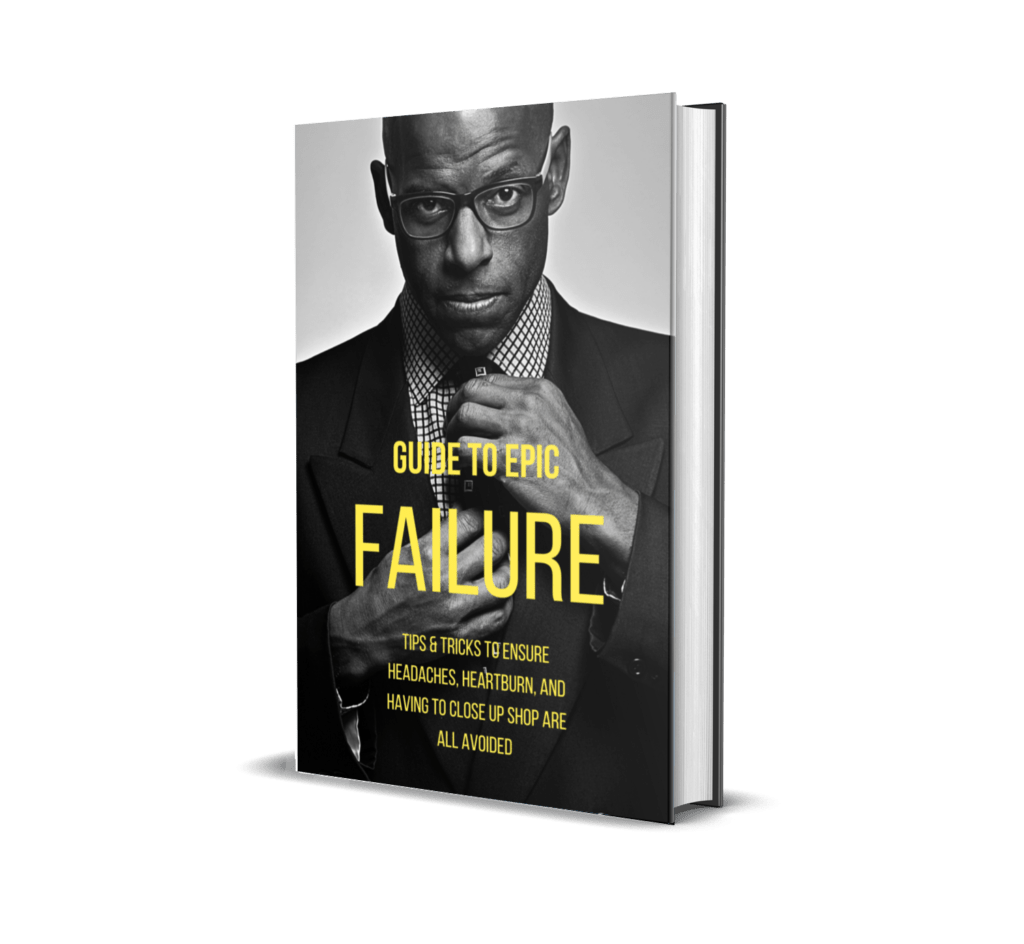Let’s start with a little story. Imagine you’re a detective, hot on the trail of a mysterious case. You’ve got fragments of clues, whispers from informants, and a hunch that something big is going on. That’s kind of like figuring out Google’s search algorithm. It’s complex, ever-changing, and shrouded in a bit of mystery. But just like any good detective, we can still crack the case, or at least get pretty close.
Here’s a sobering fact to set the stage: In Australia, as of January 2025, Google held a staggering 94.44% of the search engine market share. That means if your business isn’t showing up in Google searches, you’re practically invisible to the vast majority of your potential customers. It is, therefore, in your best interest to optimise your site for Google. And to do this, we need to understand what Google wants. It’s not just about ticking off boxes; it’s about understanding the bigger picture. While there are over 200 known and suspected ranking factors, obsessing over each one is like trying to catch every grain of sand on Bondi Beach – overwhelming and ultimately pointless. Instead, we need to focus on the SEO success factors that truly move the needle.
Understanding SEO Success Factors vs. Ranking Factors
Let’s clear up some terminology. Many people use “ranking factors” and “success factors” interchangeably, but there’s a subtle yet important difference.
What are Ranking Factors?
Ranking factors are the specific elements that Google directly considers when determining a webpage’s position in search results. These are things like keyword usage in title tags, page loading speed, and the number of quality backlinks. These are your bread and butter, the concrete elements you can directly influence.
What are Success Factors?
SEO success factors, on the other hand, are a broader category. They encompass both direct ranking factors and elements that indirectly influence your SEO performance. Think of them as the supporting cast that helps your main actors (ranking factors) shine.
A success factor might not get you a starring role in the search results on its own, but it can be the crucial element that gets you noticed by the casting director (Google). For example, having a user-friendly website design isn’t a direct ranking factor, but it can lead to lower bounce rates and longer time spent on your site – signals that Google does pay attention to.
The Enigma Machine – Machine Learning and SEO
Here’s where things get really interesting. In the early days of SEO, it was a bit like a game of checkers – relatively straightforward and predictable. You could identify specific ranking factors, optimize for them, and see fairly predictable results. But then came machine learning, and the game changed to something more akin to 4D chess.
Google’s algorithms, powered by machine learning, are now incredibly sophisticated. They learn, adapt, and evolve at an astonishing pace. This means that what worked yesterday might not work today, and what works for one website might not work for another.

Source: Moz.com
The Black Box Effect
This complexity has led to what some SEOs call the “black box effect.” Essentially, it means that even Google engineers may not fully understand every nuance of how their algorithms interact and determine rankings. There are so many variables, so many connections, that it’s impossible to trace the exact path from input to output.
This doesn’t mean we should throw our hands up in despair. It just means we need to be more strategic.
Prioritizing Your SEO Efforts – Don’t Sweat the Small Stuff
With so many potential factors to consider, it’s easy to get lost in the weeds. You could spend weeks tweaking your website’s code to improve page speed by a fraction of a second, or agonizing over the perfect keyword density. But are those efforts really going to make a significant impact? Probably not.
The 80/20 Rule of SEO
Instead, it is essential to focus on the critical success factors that deliver substantial results. This is the 80/20 rule in action; 80% of your results will come from 20% of your efforts.

Source: Intergrowth
Your time and resources are limited. Don’t waste them chasing after negligible ranking signals that will have little to no impact on your overall SEO performance. Instead, identify the heavy hitters – the factors that can truly boost your visibility and drive organic traffic.
The Meta Description Mystery – Not a Ranking Factor, But Still Important
Here’s a classic example of a success factor that’s often misunderstood: meta descriptions.
What is a Meta Description?
A meta description is the short snippet of text that appears under your page title in search results. It’s your chance to summarize your page’s content and entice users to click through.

Now, here’s the key: Google has stated that meta descriptions are not a direct ranking factor. That’s right, the exact words you use in your meta description won’t directly influence where your page ranks.
The CTR Connection
However, a well-written, compelling meta description can significantly improve your click-through rate (CTR). This means more people who see your listing in search results will actually click on it.
And here’s where it gets interesting: While Google claims that they don’t use CTR data directly in their ranking algorithms, many SEO experts, me included :D, believe that a higher CTR can send positive signals to Google. Think of it like this: if a lot of people are clicking on your result, it suggests that your page is relevant and valuable to users searching for that particular query. While not officially confirmed, this is a case where indirect factors can be just as powerful.
Aggregated Analysis of SEO Success Factors – The Wisdom of the Crowd
So, how do we identify these critical SEO success factors? It’s not just guesswork. We have a wealth of information at our disposal, gathered from a variety of sources:
1. Ranking Factor Studies
Many reputable SEO organizations conduct large-scale studies, analyzing millions of search results to identify correlations between specific factors and higher rankings. These studies provide valuable data-driven insights.
2. SEO Experimentation Data
SEO professionals are constantly experimenting, testing different strategies and tactics to see what works. This collective experimentation data, shared within the community, helps us understand the real-world impact of various SEO factors.
3. Expert Opinion Surveys
Surveys of experienced SEO practitioners provide valuable insights into what they’ve found to be most effective in their work. These surveys often reveal emerging trends and best practices.
4. Patent Filings
Google files numerous patents related to search technology. While these patents don’t always reflect current practices, they can offer clues about the direction Google is heading and the factors they consider important.
5. Statements from Google
Google representatives, like John Mueller and Gary Illyes, often share information about how their algorithms work through blog posts, webmaster hangouts, and social media. While they don’t reveal all the secrets, these statements provide valuable guidance.
By combining insights from these various sources, we can create a comprehensive picture of the SEO success factors that truly matter.
Actionable Steps for SEO Improvement – Start with the Big Rocks
Knowing is half the battle; the other half is doing. Here’s how to put this knowledge into action;
1. Prioritize the Critical Factors
Don’t try to tackle everything at once. Start with the most impactful factors – the “big rocks” that will yield the greatest results. These typically include things like:
- High-Quality Content; Creating valuable, informative, and engaging content that satisfies user intent is paramount.
- Technical SEO; Ensuring your website is technically sound, with fast loading times, mobile-friendliness, and a clear site structure.
- Backlinks: Earning high-quality backlinks from authoritative websites is still a major ranking factor.
- User Experience (UX): Providing a positive user experience is crucial, as Google prioritizes websites that are easy to use and navigate.
2. Progressively Address Less Important Elements
Once you’ve addressed the critical factors, you can gradually work your way down to the less important elements. This might involve optimizing images, refining your internal linking structure, or improving your social media presence. Each little factor will improve your SEO performance as a whole.
3. Monitor and Adapt
SEO is an ongoing process. Regularly monitor your website’s performance, track your rankings, and analyze your traffic data. Be prepared to adapt your strategy as needed based on your findings and changes in Google’s algorithms.
Visual Resource – Your SEO Success Factor Cheat Sheet
To make things even easier, I’ve created a high-resolution graphic that summarizes the key SEO success factors discussed in this article. Feel free to download it, print it out, and keep it handy as you work on your SEO strategy. Please remember to attribute the graphic back to this article if you use it elsewhere. This is an excellent resource to keep by your desk so you always have an overview of what is important.
Next Steps – Dive Deeper into the SEO Checklist
This article has provided a broad overview of SEO success factors. But if you’re ready to take your SEO game to the next level, I encourage you to dive deeper into our Template 085: [Downloadable] The SEO Checklist. [This is a dedicated resource where we provide, detailed explanations, actionable tips, and real-world examples for each of these crucial factors. You can do this by signing up to our newsletter, where we provide monthly updates on Google’s algorithm and more.]
Primary Reference Sources
To ensure the accuracy and credibility of this information, I’ve relied on a variety of reputable sources, including:
- Moz:
www.moz.com - Search Engine Journal:
www.searchenginejournal.com - Search Engine Land:
www.searchengineland.com - Backlinko:
www.backlinko.com - Google Search Central:
developers.google.com/search - Ahrefs: An industry-leading SEO toolset with an informative blog.
Focus on What Matters
In the ever-evolving world of SEO, it’s easy to get lost in the noise. There are countless articles, videos, and tools vying for your attention, often promising quick fixes and magical solutions. But the truth is, successful SEO is about focusing on the fundamentals – the impactful success factors that truly make a difference.
By understanding the distinction between ranking factors and success factors, prioritizing your efforts, and staying informed about the latest trends, you can develop a winning SEO strategy that drives organic traffic, improves your visibility, and ultimately helps you achieve your business goals. So, go forth, focus on what matters, and watch your SEO performance soar. Remember, it’s not about chasing every shiny object; it’s about making smart, strategic choices that deliver long-term results. Good luck on your SEO journey, and feel free to reach out in the comments if you have any questions or want to share your own SEO success stories!









